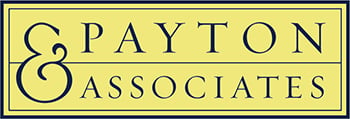Business disputes are bound to happen. Like most business professionals, you want to find ways to resolve them as efficiently as possible – without being a pushover.
Absent a provision in your contract that obliges you to resolve your disputes in a specific way, you may have the option of trying either alternative dispute resolution (ADR) methods, like mediation or arbitration, or moving straight to litigation.
Does one offer significant advantages over the other? It all depends on your situation.
What are the benefits of ADR?
The vast majority of business disputes are resolved before ever going to trial, so ADR can “cut to the chase” and push companies to do what they’re already likely to do and settle a lot faster. In addition, alternative dispute resolutions generally offer the following advantages over litigation:
- It stresses cooperation rather than taking an automatically adversarial approach, and that can preserve the business relationship between the two parties for the future.
- The process is typically confidential, which means that there’s less concern about the optics of the dispute and reputational damage or the revelation of company secrets.
- The process is usually less expensive than litigation and more flexible, since the two parties are free to coordinate their own schedule instead of following the court’s schedule.
If used correctly, arbitration can be economical, efficient and expedient. If it is treated like litigation, it loses its benefits of economy, efficiency and expediency.
What are the drawbacks of ADR?
ADR processes are not without their perils. For example, some companies will blatantly use ADR as a stalling tactic to drag everything along and try to exhaust the other party into giving up. If there’s no agreement that the ADR process will be binding, a party that isn’t negotiating in good faith can even cost your company thousands by retracting an agreement once the ADR process is over.
You may not be in a great position even with a binding procedure, however. While you always hope for neutral arbitrators, unfair decisions are possible – and there is generally no ability to appeal.
It’s not always easy to determine whether the benefits of alternative dispute resolution outweigh the drawbacks because every case is very fact-specific. Experienced legal guidance can help you evaluate the options and make the correct decision for you and your business.
The best of both possible worlds
In your contract, you might provide for both alternative dispute resolution and civil litigation. You can provide that claims under a certain amount of money will be arbitrated and that the parties will litigate claims over that amount. You set the dollar amount by determining the amount of money you are willing to lose without having a right to appeal. You preserve your right to civil litigation and the right of appeal as to all claims over that amount.

